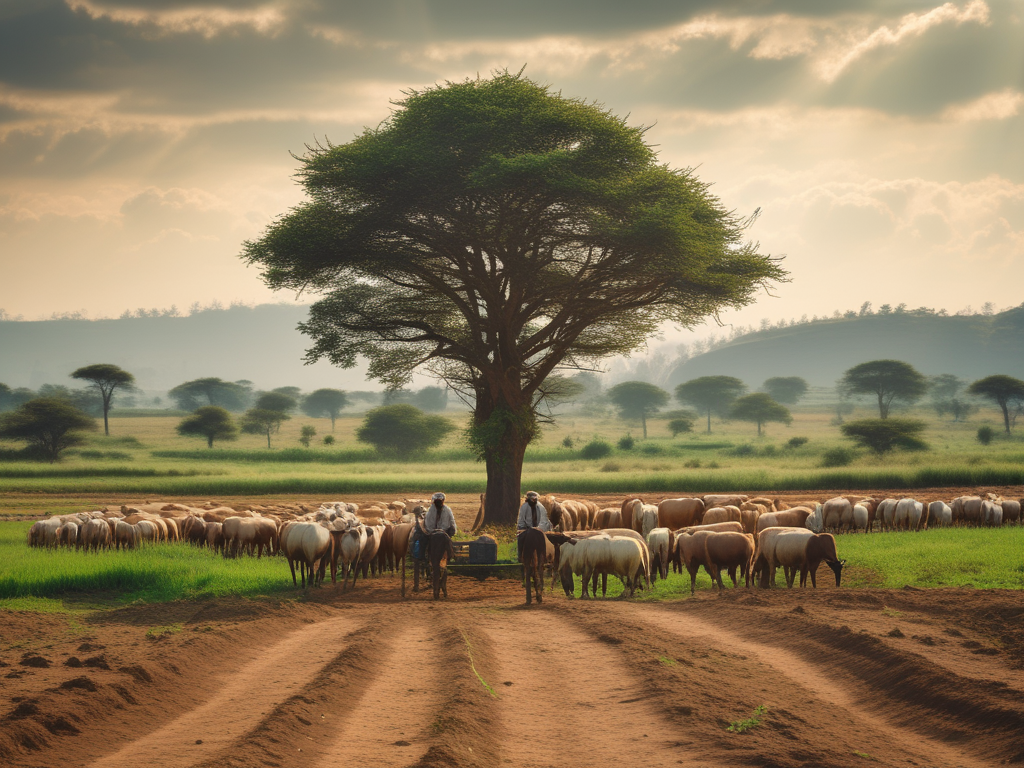Agricultural policies play a crucial role in shaping the future of farming and food security in Africa. These policies influence everything from funding and subsidies to technology adoption and market access. How well do you know the agricultural policies that impact farmers in Nigeria and across Africa? Take this quiz to find out and deepen your understanding of the policies shaping the continent’s agricultural landscape.
Question 1: What is the main objective of the Comprehensive Africa Agriculture Development Programme (CAADP)?
A) To promote industrial farming across Africa
B) To increase agricultural productivity by at least 6% annually
C) To replace all small-scale farmers with large corporations
D) To reduce agricultural exports to other continents
Hint: This program was initiated by the African Union to transform agriculture and ensure food security.
Answer Explanation:
The correct answer is B) To increase agricultural productivity by at least 6% annually. CAADP aims to achieve this growth through investment in agriculture, thereby boosting food security, nutrition, and economic growth across the continent.
Question 2: Which Nigerian policy focuses on transforming agriculture through value chain development?
A) Operation Feed the Nation (OFN)
B) Agricultural Transformation Agenda (ATA)
C) Green Revolution
D) National Food Security Program (NFSP)
Hint: This policy was introduced in 2011 to promote value addition and improve market access.
Answer Explanation:
The correct answer is B) Agricultural Transformation Agenda (ATA). The ATA was designed to modernize Nigeria’s agriculture by addressing key issues along the agricultural value chain, enhancing productivity, and improving farmers’ incomes.
Question 3: Which East African country implemented the “Kilimo Kwanza” policy, which translates to “Agriculture First”?
A) Kenya
B) Tanzania
C) Uganda
D) Rwanda
Hint: This policy was launched in 2009 to prioritize agriculture and boost the economy.
Answer Explanation:
The correct answer is B) Tanzania. The “Kilimo Kwanza” initiative was introduced to promote agricultural productivity and ensure food security by investing in modern farming techniques and infrastructure.
Question 4: What is the main goal of the Malabo Declaration on Accelerated Agricultural Growth and Transformation for Shared Prosperity and Improved Livelihoods?
A) To reduce agricultural subsidies
B) To increase the area of arable land
C) To eliminate hunger and halve poverty by 2025
D) To reduce the number of smallholder farmers
Hint: This declaration was made by African leaders to renew their commitment to agricultural development.
Answer Explanation:
The correct answer is C) To eliminate hunger and halve poverty by 2025. The Malabo Declaration, adopted in 2014, aims to improve agricultural productivity, enhance resilience, and ensure inclusive economic growth through agriculture.
Question 5: Which policy initiative focuses on youth involvement in agriculture in Africa?
A) Youth Employment in Agriculture Programme (YEAP)
B) Senior Farmers Initiative (SFI)
C) African Farmers Association of Youth (AFAY)
D) Green Youth Revolution
Hint: This program aims to attract young people to the agricultural sector and create employment opportunities.
Answer Explanation:
The correct answer is A) Youth Employment in Agriculture Programme (YEAP). YEAP is an initiative designed to engage youth in agriculture by providing them with skills, resources, and opportunities to build successful agricultural enterprises.
Question 6: In which country is the “Farming is Cool” initiative aimed at encouraging young people to take up farming?
A) Nigeria
B) Ghana
C) South Africa
D) Ethiopia
Hint: This initiative was launched by a famous entrepreneur and philanthropist.
Answer Explanation:
The correct answer is B) Ghana. The “Farming is Cool” initiative in Ghana was launched to change the perception of farming among young people and to promote agriculture as a viable and attractive career option.
Question 7: Which organization is responsible for implementing the Agricultural Sector Development Programme (ASDP) in Tanzania?
A) Ministry of Industry and Trade
B) Ministry of Agriculture
C) Ministry of Finance
D) Ministry of Health
Hint: This program aims to improve the livelihoods of smallholder farmers through various agricultural interventions.
Answer Explanation:
The correct answer is B) Ministry of Agriculture. The Agricultural Sector Development Programme (ASDP) in Tanzania is implemented by the Ministry of Agriculture to enhance agricultural productivity, food security, and rural livelihoods.
Conclusion
Understanding agricultural policies is crucial for anyone involved in the agribusiness sector. These policies shape the environment in which farmers operate and determine the resources and support available to them. By staying informed about these policies, you can better navigate the agricultural landscape and contribute to the growth and sustainability of the sector in Nigeria and across Africa. How did you score on the quiz? Share your results and insights with your peers to promote awareness and knowledge about agricultural policies! This quiz is designed to be engaging and educational, providing readers with valuable information on agricultural policies in Africa.


